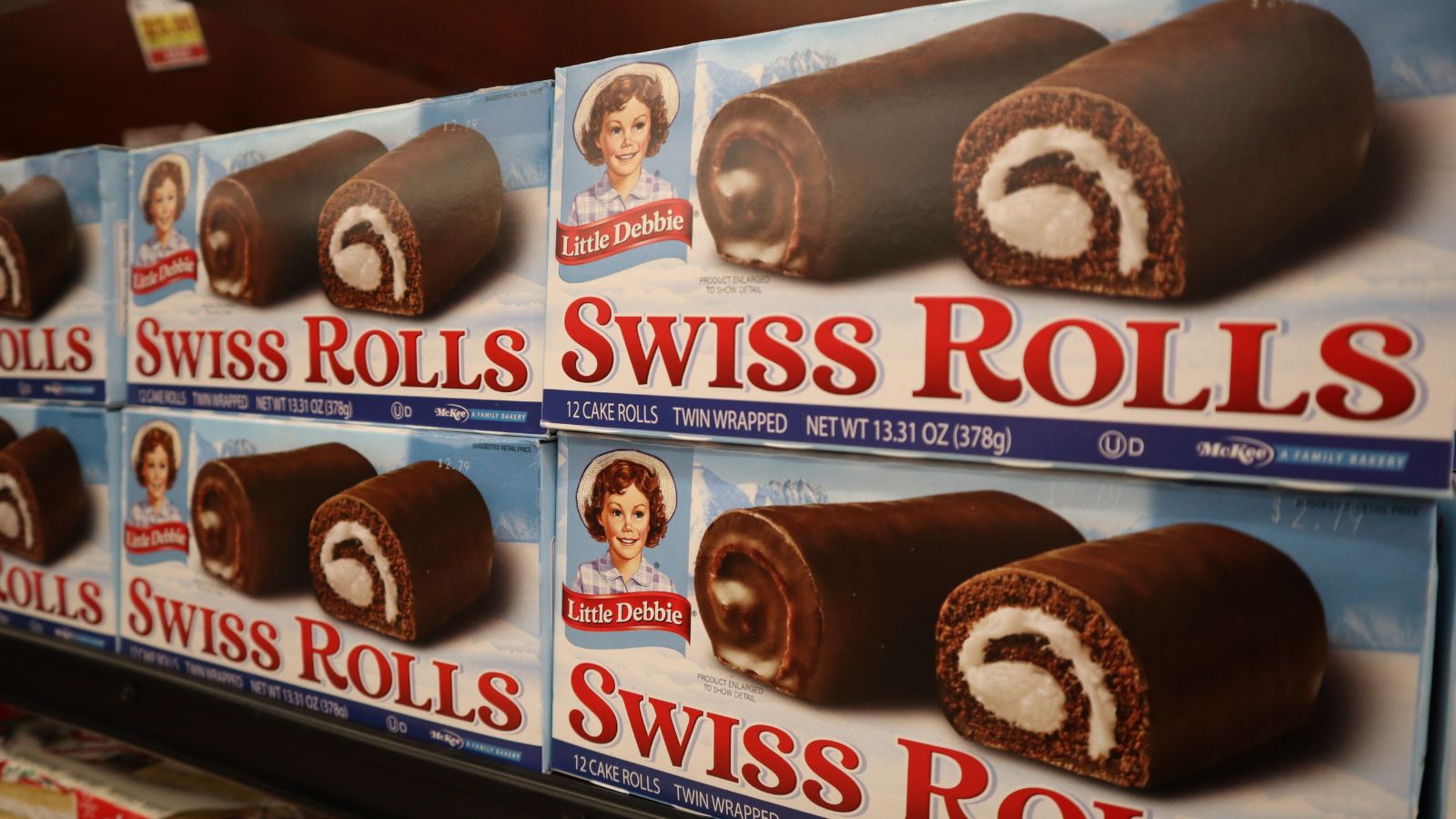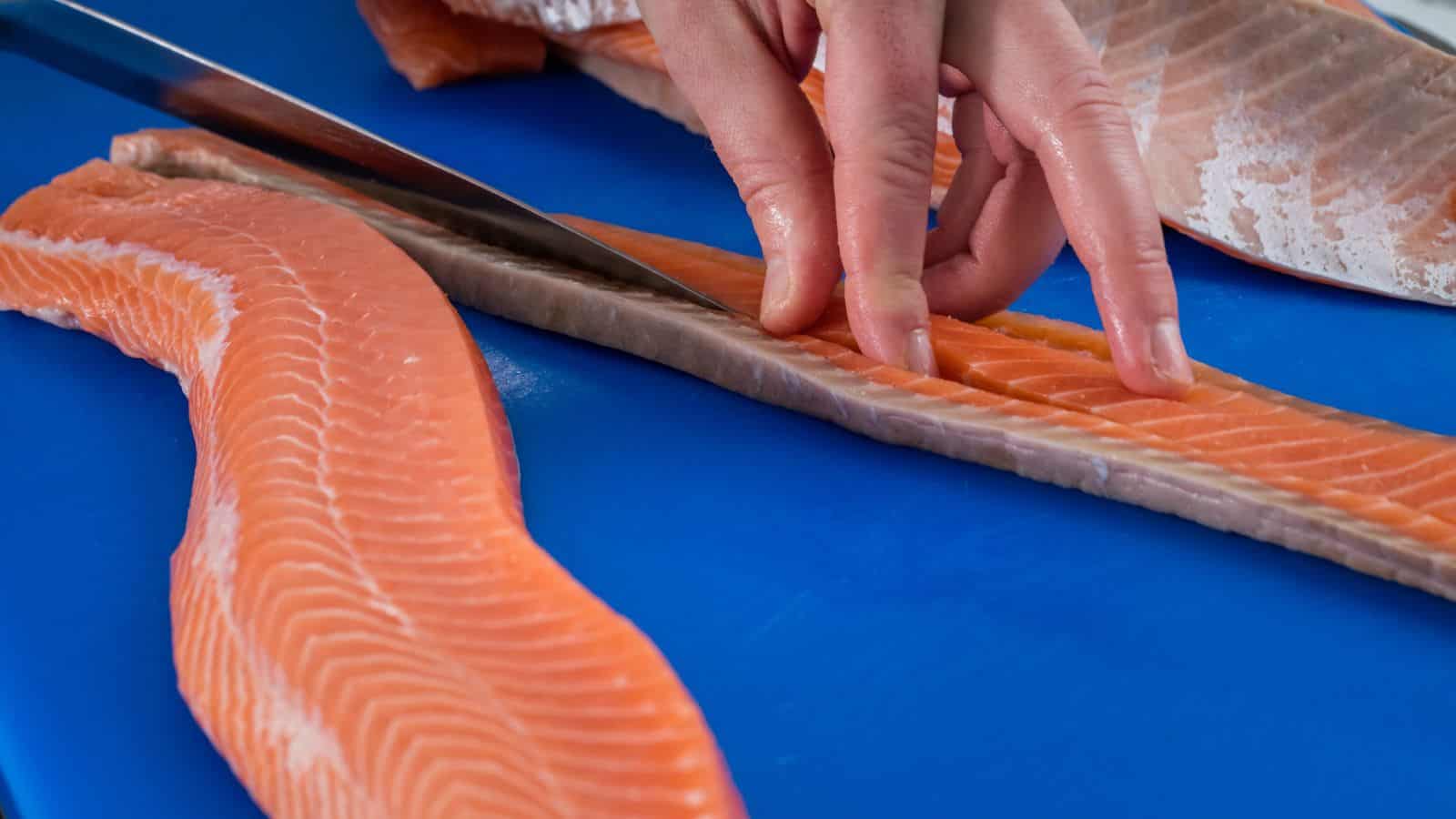You may not even think about whether the foods you eat are allowed in other countries until you go on vacation and can’t get your favorite soda or notice something tastes different. These 18 foods Americans eat all the time are banned in other countries for safety and cultural reasons.
Stove Top Stuffing

Stove Top is an easy way to recreate Thanksgiving on any weeknight, but the combination of beta-hydroxy acid (BHA) and butylated hydroxytoluene (BHT) takes this off the menu in Japan, the UK, and many European countries. The FDA in the U.S. says it’s reasonably safe, but it’s limited to up to 0.02 percent, or 200 parts per million, of the fat or oil content of the food product.
Frosted Flakes and Rice Krispies

Like our favorite Stove Top, these breakfast cereals contain BHT, a flavor enhancer that is banned in Japan and the European Union. If you’re traveling to these countries, it might be time to try to eat breakfast like the locals and wait for “snap, crackle, and pop” at home.
Twinkies and Little Debbie Swiss Rolls

We know high fructose corn syrup and hydrogenated oils are bad for us. Even though they’re marketed to children and thrown into lunch boxes across the country, the cake treats have the food dyes Yellow 5 and Red 40 in them, and they can cause adverse effects in children. The EU requires warning labels on artificial dyes, but Austria, Finland, and Norway don’t even take the chance of putting Twinkies on their shelves.
Skittles

The colorful, fruity candies are a favorite of children and adults alike in the U.S. However, if you head to Norway, you won’t be able to taste the rainbow because they contain titanium dioxide. Skittles also contain Yellow 5 and Yellow 6, which are both known to be bad.
Pillsbury Biscuits

You either love or fear the pop of a can of Pillsbury biscuits. Switzerland, Austria, Hungary, Denmark, Norway, and Iceland fear them for their trans fats, leading to their ban in those countries. Trans fats have been proven to increase the risk of heart disease, so we can’t blame them for that one.
Mountain Dew

Drink Mountain Dew, and you’ll discover brominated vegetable oil, which has been linked to headaches, memory loss, skin issues, and more. It is banned in Japan and the EU. BVO is no longer used in Mountain Dew except “Mountain Dew Throwback,” but it is still found in Sun Drop, made by the Keurig Dr. Pepper Group.
Bread with Potassium Bromate

You’d think American bread is banned in Europe because it’s just not as good, but it is the potassium bromate that has potential carcinogenic effects and can damage the nervous system and kidneys. A Purdue researcher said, “It’s all about how much of that chemical could actually cause illness.” However, if you ask anyone with a gluten intolerance in the U.S. who can eat bread in Europe, there may be something to it.
Boxed Mac N’ Cheese

It’s a staple in most American children’s diets, so it may be surprising that it contains two food dyes that cause hyperactivity in children, Yellow #5 and #6. This has it banned in Norway, Finland, and a handful of other countries. So, take an extra glance at the box before feeding it to your favorite little ones.
Ritz Crackers

Ritz crackers are a favorite in the U.S. with a simple slice of cheese, or you can fancy them up with meat. However, these buttery crackers are prohibited in the United Kingdom and Canada for the presence of potassium bromate. Brazil also banned Ritz crackers because they contain trans fats.
Cheetos

Those bright orange puffs of deliciousness are a snack not meant for the British. The UK has banned Chester Cheetah and his Cheetos, calling them unsuitable for human consumption because of their high levels of food coloring. Well, we knew that orange wasn’t natural, right?
Apples

An apple a day keeps the doctor away, which is great for your health, as long as you take care to clean all the shine off of them. Diphenylamine (DPA) is a chemical used to make our apples glisten in the sun, but it is banned in Europe.
Ketchup

This one is banned for entirely cultural reasons. Ketchup is not allowed in French elementary schools to preserve the food culture. What would they say if they saw how many things kids dip into ranch dressing in the U.S.?
Coffee-Mate

So many flavors of Coffee-Mate can take a simple cup of coffee and make it anything you want it to be. However, hydrogenated soybean and cottonseed oils got Coffee-Mate banned in Austria, Hungary, and several Scandinavian countries. With the delicious coffees available there, maybe Coffee-Mate isn’t necessary anyway.
Farmed Salmon

Salmon is a healthy food, right? Farmed fish are fed a chemical cocktail, including methylmercury, dioxins, and antibiotics. Methyl mercury can be found in fluorescent lights, batteries, and polyvinyl chloride. This explains why countries like Austria, Japan, New Zealand, and most countries in the EU don’t go near farmed-raised fish. Keep eating salmon; just opt for the wild-caught.
Gatorade

BVO: is it in you? The Food and Drug Administration has jumped in with the EU and proposed banning the use of brominated vegetable oil. This food ingredient in drinks like Gatorade and Mountain Dew has been slowly phased out due to its link to potential health risks, including damage to the liver, heart, and brain.
Drumstick Ice Cream Cones

The Drumstick ice cream cone is a favorite during the heat of the summer. Be mindful that they use carrageenan, derived from seaweed, for texture in the ice cream. Carrageenan causes inflammation, digestive problems such as bloating and irritable bowel disease (IBD), and even colon cancer, which has led to its limited use in the European Union.
Processed Cheese Slices

The standard for grilled cheese during our youth, processed cheese singles are not as loved elsewhere. Some European countries place strict regulations on the type of cheese that can be imported into their borders. Products like processed cheese slices are still prohibited in France. Brie melts perfectly between slices of artisan bread; we get it.
Chewing Gum

People chew gum all over the world, some for fresh breath, others for white teeth, or even just to have something to do with their mouths. However, Singapore banned chewing gum back in 1992 in an attempt by the Southeast Asian state’s authorities to keep the island clean in conjunction with laws against littering, spitting, and graffiti. What would they think of the Gum Wall in Seattle?
Read More: 18 American Phrases That Non-Americans Struggle to Understand

American expressions are a vital part of its culture, reflecting the nation’s history and values. However, these sayings can sometimes puzzle people from other countries because they often carry context, colloquialisms, and historical references that can lose their intended meaning when crossing borders. Let’s look at 18 of such American sayings.
18 American Phrases That Non-Americans Struggle to Understand
18 Reasons Why No One Is Interested in Working Anymore

The concept of traditional employment has taken a back seat in recent times with changes in economic and social factors, as well as individual preferences. Traditional jobs have also evolved, and many people don’t feel the need to take this route anymore. These are 18 reasons why no one is interested in working anymore.
18 Reasons Why No One Is Interested in Working Anymore
17 States Americans No Longer Want to Live In

America is constantly changing, and within it, so are its states. Some have new laws that residents don’t agree with, while others have increasing rates of unemployment or areas of extreme poverty. These aspects make it difficult for a person to stay in their home state. Here are 17 states that Americans are deciding to reconsider.
17 States Americans No Longer Want to Live In
17 Things That Are Sadly Disappearing From Everyday Life

Life in modern times seems to evolve at an unprecedented pace. Certain things we couldn’t live without a few years ago are rapidly becoming redundant. Let’s take a peek at 17 such victims of modernization and why they’re slowly but surely disappearing.
17 Things That Are Sadly Disappearing From Everyday Life
15 Ways To Tell If Someone Is Not a Good Person

While it’s important to avoid quick judgments, certain behaviors can be strong indicators of a person’s character. Here are 15 ways to discern if someone might be a bad influence or possess harmful traits.

